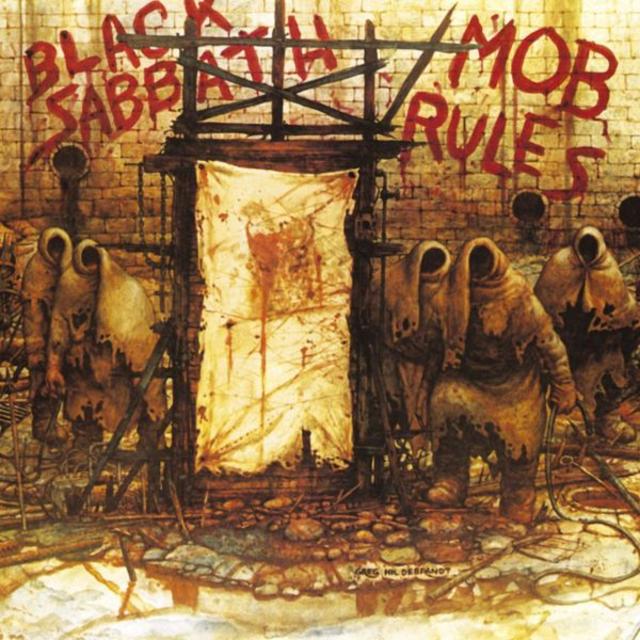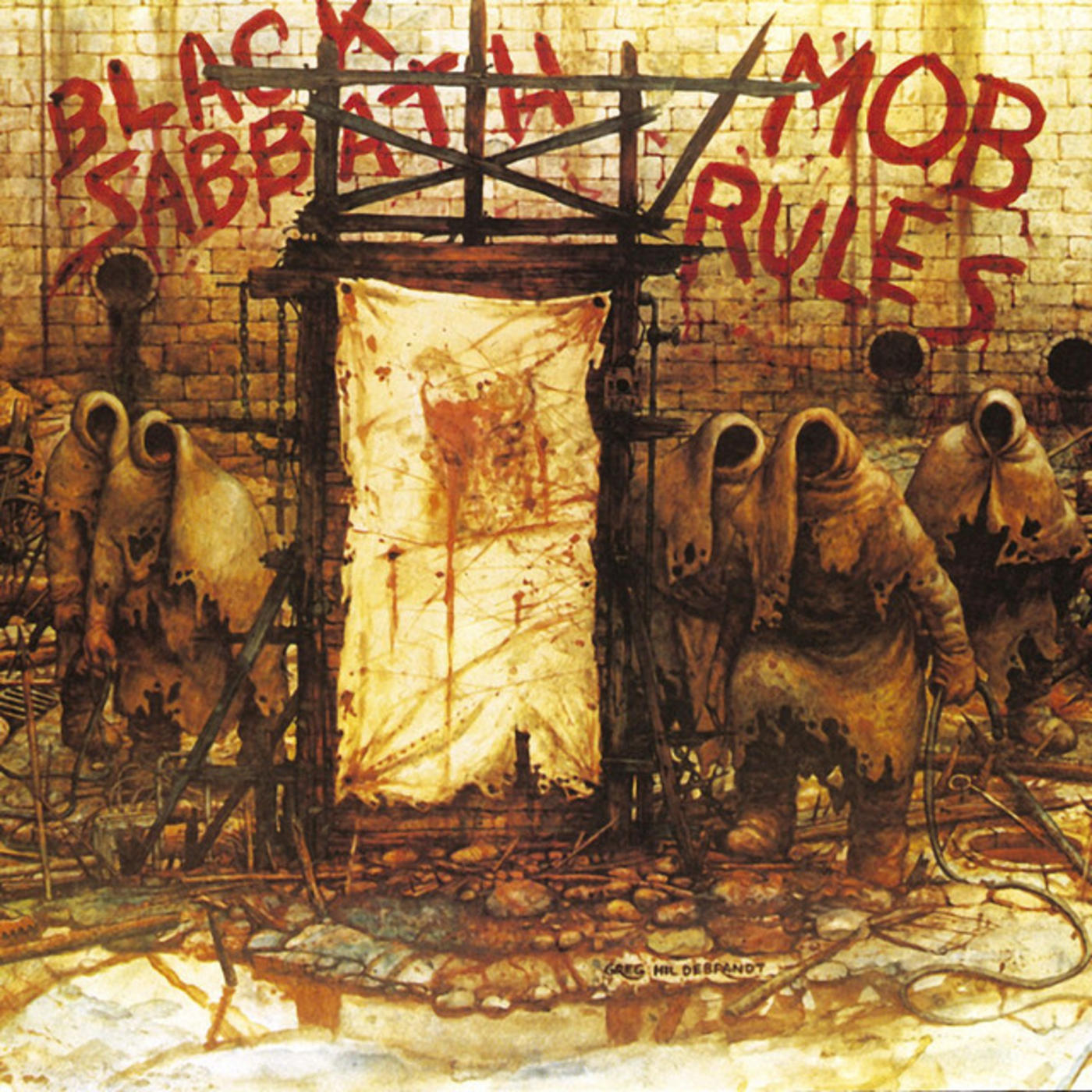Happy Anniversary: Black Sabbath, Mob Rules

34 years ago today, Black Sabbath released the second of their studio albums to featured Ronnie James Dio as lead vocalist, little realizing that it would be another 11 years before he and the band would reteam for another one.
The writing and rehearsal process for the album began in a rented house in Toluca Lake, California, but attempts to record the album in their own studio failed to result in a sound that the band liked, so they ended up taking their business to the Record Plant instead. The title track of Mob Rules was, as it happens, the first song recorded for the album, except that it was really recorded for the soundtrack of the animated film Heavy Metal. It also proved to be the first song recorded by the band with their new drummer, Vinny Appice, stepping in for founding Sabbath member Bill Ward.
As for Dio's subsequent departure, it seems to have happened at least partially as a result of Warner Brothers more or less simultaneously extending Black Sabbath's contract even as they offered Dio a solo deal, but Dio acknowledged in the documentary Neon Nights: 30 Years of Heaven and Hell that the writing process for Mob Rules was different than it had been for Heaven and Hell, and not in a particularly good way. That checks out with Tony Iommi's remarks to Guitar World in 1992, where he acknowledged, “We started writing songs differently for some reason, and ended up not using a lot of really great material.”
In the end, Mob Rules did score a pair of radio hits in both the US and the UK, although the two countries only shared one between them: “Turn Up the Night.” Otherwise, the album's title track was a minor hit in the UK, hitting #46, whereas “Voodoo” received rock radio attention in the States. Not a bad showing, all told, but the world still wouldn't be graced with another Dio-fronted Sabbath album until 1992's Dehumanizer.


